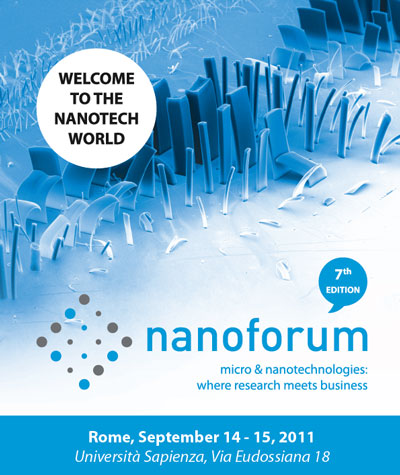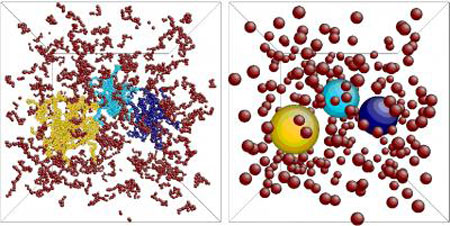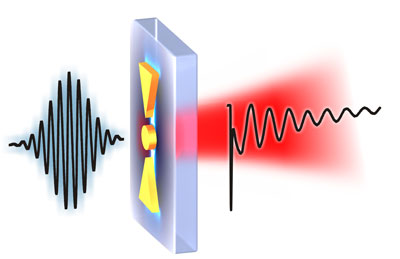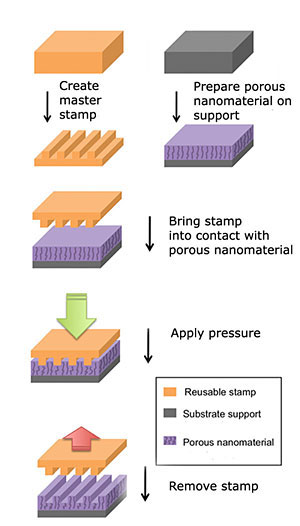Industry's only truly collaborative approach to design enablement delivers value, performance, and time-to-volume at leading-edge technologies.
Jun 1st, 2011
Read more
 The seventh edition of nanoforum will take place on September 14-15, 2011, at Sapienza University of Rome. This event represents an excellent opportunity to get informed about the state of the art of nanotechnologies in Italy and abroad and to learn about the latest industrial applications, thanks to a large conference program and a specialized expo area.
The seventh edition of nanoforum will take place on September 14-15, 2011, at Sapienza University of Rome. This event represents an excellent opportunity to get informed about the state of the art of nanotechnologies in Italy and abroad and to learn about the latest industrial applications, thanks to a large conference program and a specialized expo area.
Jun 1st, 2011
Read more
The first pan-European EUREKA investment platform is being launched today in Jerusalem at the Annual High-Tech Association Conference.
Jun 1st, 2011
Read more
 Research team from Juelich, Vienna, Rome and Grenoble paves the way for improving understanding of complex fluids
Research team from Juelich, Vienna, Rome and Grenoble paves the way for improving understanding of complex fluids
Jun 1st, 2011
Read more
With the curtain about to rise on a much-anticipated new era of "nanoagriculture" - using nanotechnology to boost the productivity of plants for food, fuel, and other uses - scientists are reporting a huge gap in knowledge about the effects of nanoparticles on corn, tomatoes, rice and other food crops.
Jun 1st, 2011
Read more
University of Michigan physicists used the electric fields generated by intersecting laser beams to trap and manipulate thousands of microscopic plastic spheres, thereby creating 3-D arrays of optically induced crystals.
Jun 1st, 2011
Read more
Eine EU-Verordnung, nach der technisch hergestellte Nanomaterialien in Lebensmitteln gekennzeichnet werden sollen, wird derzeit in zweiter Lesung beraten.
Jun 1st, 2011
Read more
 Even tiny gold nanoparticles, with a diameter of only 40 millionths of a millimeter, have something like a heartbeat. When focusing a short laser pulse on the particles they heat up very briefly and start to vibrate. But, even the best microscopes can not resolve these nanoparticles, which are therefore very difficult to study.
Even tiny gold nanoparticles, with a diameter of only 40 millionths of a millimeter, have something like a heartbeat. When focusing a short laser pulse on the particles they heat up very briefly and start to vibrate. But, even the best microscopes can not resolve these nanoparticles, which are therefore very difficult to study.
Jun 1st, 2011
Read more
In this month's Physics World, Jason Reese, Weir Professor of Thermodynamics and Fluid Mechanics at the University of Strathclyde, describes the role that carbon nanotubes could play in the desalination of water, providing a possible solution to the problem of the world's ever-growing population demanding more and more fresh drinking water.
Jun 1st, 2011
Read more
 A simple technique for stamping patterns invisible to the human eye onto a special class of nanomaterials provides a new, cost-effective way to produce novel devices in areas ranging from drug delivery to solar cells.
A simple technique for stamping patterns invisible to the human eye onto a special class of nanomaterials provides a new, cost-effective way to produce novel devices in areas ranging from drug delivery to solar cells.
May 31st, 2011
Read more
 Blood clotting is a complicated business, particularly for those trying to understand how the body responds to injury. In a new study, researchers report that they are the first to describe in atomic detail a chemical interaction that is vital to blood clotting. This interaction - between a clotting factor and a cell membrane - has baffled scientists for decades.
Blood clotting is a complicated business, particularly for those trying to understand how the body responds to injury. In a new study, researchers report that they are the first to describe in atomic detail a chemical interaction that is vital to blood clotting. This interaction - between a clotting factor and a cell membrane - has baffled scientists for decades.
May 31st, 2011
Read more
The French-German Research Institute of Saint-Louis (ISL) associated within the network MICA (Materials Institute Carnot Alsace) to 8 Alsatian public laboratories and 7 so called CRITT / Regional Centres for Innovation and Technology Transfer) has been labelled CARNOT-Institute by the French Ministry of Research on 28 April 2011. This accreditation of its expert group for material sciences as Carnot Institute is an important step to the valorisation of ISL material research results.
May 31st, 2011
Read more
The creation of a new quasiparticle called the "hybrid plasmon polariton" may throw open the doors to integrated photonic circuits and optical computing for the 21st century. Researchers with the U.S. Department of Energy (DOE)'s Lawrence Berkeley National Laboratory (Berkeley Lab) have demonstrated the first true nanoscale waveguides for next generation on-chip optical communication systems.
May 31st, 2011
Read more
What would it take to make a manned mission to Mars a reality? A team of aeronautical and textile engineering students from North Carolina State University believe part of the solution may lie in advanced textile materials. The students joined forces to tackle life-support challenges that the aerospace industry has been grappling with for decades.
May 31st, 2011
Read more
A new lightweight web service interface for accessing massive amounts of life science research data across multiple public and private domains has been developed by researchers at RIKEN, Japan's flagship research institute. Through the powerful RIKEN Scientists' Networking System (SciNetS), the service provides a secure, flexible and light weight interface to millions of data records and their network of semantic relationships, ushering in a new era of collaboration, analysis and information-sharing for life science research and applied innovation.
May 31st, 2011
Read more
David Kaplan and his team at Tufts University haveused genetic engineering techniques to produce a new material that combines the biocompatibility and toughness of silk with the anti-bacterial properties of silver.
May 31st, 2011
Read more






 Subscribe to our Nanotechnology News feed
Subscribe to our Nanotechnology News feed